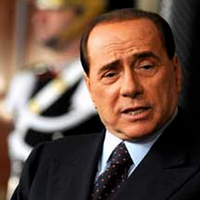In December, Italy's bilateral trade agreements with Russia drew media scrutiny. First, a Wikileaks cable release indicated anxiety on the part of various U.S. diplomats over Italian Prime Minister Silvio Berlusconi's close friendship with Russia's leaders, particularly Russian President Vladimir Putin. Then Italy's largest energy company, Eni, renewed its extensive 2006 contract with Russia's Gazprom, including plans to jointly build the South Stream pipeline across the Black Sea, as well as cooperation in drilling, transportation and personnel training.
Critics in Italy and abroad believe the energy partnership between the two nations results as much from Berlusconi's personal politics as from economic exigencies, and suspect it may weaken if the scandal-ridden prime minister leaves office. But this view ignores the extensive history of energy and trade cooperation between Russia and Italy, as well as Italy's political ambitions in Southeastern Europe. It may be the case that, if Berlusconi's People of Freedom party loses power, Italy may stop trying to broker deals between Russia and the European Union. But Berlusconi's alleged Russophilia was not the cause of the Italian energy industry's close partnerships with companies like Gazprom and Itera, a conglomerate with Russian gas holdings, and is unlikely to alter their future collaboration.
In a December meeting, Gazprom's president, Alexey Miller, and Eni's CEO, Paolo Scaroni, reaffirmed the goals they set at a 2009 forum where Berlusconi and Russian President Dmitri Medvedev spoke of cooperating well into the next decade. Plans for the South Stream pipeline continue, with the first phase projected to be operational by 2015, running from Russia under the Black Sea through the Balkans into Italy. Additionally, the Italian-Russian jointly held SeverEnergia continues to operate facilities in Western Siberia, the source of most of Russia's gas production. In 2009, Gazprom acquired a 51 percent stake in that company.

